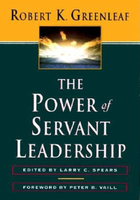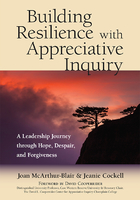The right of the people to be secure in their persons, houses, papers and effects, against unreasonable searches and seizures, shall not be violated, and no Warrants shall issue, but upon probable cause, supported by Oath or affirmation, and particularly describing the place to be searched, and the persons or things to be seized.
-Constitution of the United States
Amendment IV
CHAPTER 1 The Government-Corporate Complex: What It Knows about You
Reason to be afraid #1:
Average citizens are subject to ever-expanding surveillance and data collection by the government-corporate complex.
Halfway across the ornate sitting room, Julian Assange stands with his back to the door, drinking a bottle of beer. It is early on a summer evening, June 22, 2013, and the Embassy of Ecuador in London is hosting a small party to acknowledge the one-year anniversary of his arrival in need of asylum. While Assange stands chatting calmly about the future of his anti-secrecy enterprise, Wikileaks, few people in the room know that he is worried. Sarah Harrison, his principal researcher and confidant, is only hours away from slipping out of Hong Kong with Edward Snowden, who, at that moment, is fast becoming the most hunted man in the world.
Close friends and supporters of Assange mill around the room, helping themselves to the buffet and arguing about software and the state of the world-in that order. Assange himself, with his longish white hair and black jeans, looks slightly out of place in the scene, bordered as it is by stiff-legged, gilt-painted settees. After a year, however, he's completely at home here, laughing and joking with the security guys, lawyers, and hacker guests, talking thoughtfully about the escalating struggle for control of electronic information.
"There's a completely new creation in the world," he says. "And the battle is on for access to it."
He's talking about the electronic "pocket litter" that each of us collects as we cruise the Internet and use our cell phones each day. Behind us, we leave a digital trail that reveals our interests, our politics, our friends, their friends, our health worries, our finances and fears. As he speaks, Assange is thinking of Snowden and what he had recently revealed about the practices of the National Security Agency (NSA) in the United States.
In the course of his highly classified contract work for the NSA, the US intelligence agency, Snowden uncovered unconstitutional surveillance programs that trace and store the electronic pathways etched across the Internet by hundreds of millions of Americans. NSA surveillance also sweeps up and archives the metadata associated with phone calls. Snowden discovered that Americans are subject to dragnet electronic domestic surveillance and have been for years.
His disclosure of NSA domestic surveillance caused a Washington tailspin, and the search for the source was on. After he identified himself in a video filmed in a nondescript Hong Kong hotel room, US political pressure ramped up on the Chinese government. The White House, the NSA, and the FBI closed in, and as a Chinese diplomat later confided, "You don't know what pressure is until you have those sons-of-bitches breathing down your neck."
Even if everything else the Chinese government said about its role in the Snowden affair was calculated, that statement was unquestionably spontaneous and true. Snowden had the secrets to the Corporate Security State that was quietly metastasizing through US federal agencies and corporate management suites after 9/11, and he was telling them to the world. He had to be stopped.
In the world of national security and surveillance, the evening of June 5, 2013, two weeks earlier, was frankly horrible. At about 9:30 Eastern Daylight Time, a story by Glenn Greenwald appeared on the Guardian website, linked to an order from the Foreign Intelligence Surveillance Court (FISC) of the United States.[1] In black and white, the document showed that, at the request of the FBI, the FISC ordered Verizon Business Network Services to submit all telephony metadata in its systems to the NSA. Only the data for calls originating and terminating abroad were exempted from the order, which, until the Guardian posted it, was secret. The order would not declassify until April 2038, twenty-five years in the future.
Telephony metadata, an unknown phrase for many of us until that night, includes the phone number called, number calling, routing of call, phone number identifiers, time of call, and duration. Subsequently, we learned that the FBI gave similar orders to Sprint Nextel and AT&T. Through a secret and tortured interpretation of the Patriot Act, Section 215, the court allowed this data collection.
Moreover, Greenwald wrote the next day that the NSA used a program called PRISM to collect customers' data from Microsoft, Yahoo, Google, Facebook, and other online corporations.
Two months later, a new Greenwald article appeared, also on the Guardian website: "XKeyscore-NSA tool collects 'nearly everything a user does on the Internet.'" The article explained that the XKeyscore program sucks into its maw almost every electronic datum on the Internet about everyone in the United States. And more than that: analysts need no prior authorization to inspect the emails, Facebook pages and postings, tweets, and Internet browsing history of ordinary citizens suspected of nothing. Via XKeycore, analysts at the NSA:
[L]isten to whatever emails they want, whatever telephone calls, browsing histories, Microsoft Word documents. And it's all done with no need to go to a court, with no need to even get supervisor approval on the part of the analyst."[2]
Imagine that.
Many Americans can't, really. "I'm not a terrorist," they shrug. "So why should I care?" Then they laugh at the absurdity of highly skilled intelligence agents reading their dopey emails. "Go ahead, but it's pretty boring" is the typical reaction.
I work for a small nonprofit organization law firm in Washington, DC, that defends whistleblowers: the Government Accountability Project (GAP). Ordinary people come to us after they report appalling things in the places where they work and are dismissed, disciplined, or demoted in retaliation. They're hoping we can tell the world what they told us (at the very least) and get them their jobs back (at best). Most of our clients are federal government employees. We work with food inspectors, for example, who report animal cruelty in processing plants and toxic chemical additives to your food. Our clients are UN police officers who witness and report rape and sexual abuse by peacekeeping forces. Office workers and agents at the FBI and the NSA come to us to document gross waste and abuse. As do traders and risk managers who see pervasive fraud at multinational banks and FDA officials who report drug trials faked by pharmaceutical companies. At truly repressive institutions such as the World Bank, our sources remain anonymous, but they also contact us by phone and email.
As a result, at GAP, our emails are not boring, and we do not want the NSA collecting them, much less reading them. Since the Snowden disclosures, we ask our clients to meet us outside the office, downstairs, and around the corner at Starbucks. We have to talk face to face as if we were subversives. To be safe, whistleblowers facing retaliation must provide their evidence on paper now, not by email.
Journalists must do the same with their sources. Or they need complex, user-hostile encryption programs. The loss of freedom from unreasonable search and seizure that Snowden exposed means the loss of a free press and free speech, as well as a loss of freedom of association.
Those who shrug about all this are right in a sense. Most calls and Internet habits are attracting nothing more than routine attention. It is also true, however, that innocent behaviors can drop you into the NSA's net. You are suspect if you're communicating over email in a language other than the one of the region you're in or if you're using encryption (in other words, trying to protect your privacy). Dissenting actions will also attract attention: writing a critical blog, or book; becoming a vocal whistleblower, whether wittingly or otherwise; contacting someone who contacts someone else who appears to be suspect. And then you must consider that US intelligence agencies have on record virtually everything you have done for five years past.
You should know that whatever information about you the government lacks, private corporations probably can provide. Your bank, of course, controls your financial data: number of bank accounts, balance, history of deposits, how much and when, cash withdrawals, bills paid, and checks written. Everything you bought with your debit card is also on record. Of course, if your bank issued your credit cards, then your purchases and payments every day, every month, are collected there, too.
You may also have noticed that whenever you shop online for, say, a how-to book or a garden tool, however specialized, you begin to get emails advertizing different versions of these things. Pop-up ads seem especially tailored for you. That's because they are. Commercial websites use cookies that record the ads you click on so that targeting is extremely precise.[3]
Then there's the new industry of data aggregation led by corporations like Acxiom and ChoicePoint. In her book Spying on Democracy, Heidi Boghosian describes this growing enterprise, which collects information about you available from municipal service providers, voter registration lists, property files, and court records. Clients of these companies include financial institutions, telecommunications companies, and insurance companies, which buy profiles and records for direct marketing purposes.
The US government also contracts data aggregators. According to Bogoshian:
Consumers are largely in the dark about the extent to which their personal data is being shared among different industries and government agencies and for what purpose. What is known, however, is that businesses and other organizations expend more than $2 billion annually to purchase personal information on individuals.[4]
This is what Julian Assange meant when he said that there is a new creation in the world, and the struggle is on for access to it and control of it.
On a Wednesday afternoon in the fall of 2011, Jesselyn Radack (GAP's National Security and Human Rights program director), Kathleen McClellan (GAP's National Security counsel), and attorneys from three nongovernmental organizations (NGOs) convene in the conference room at GAP. It is decorated with the customary law firm props: the long oval table, the speaker phone, and shelves of matching leather-bound law books that no one has opened since the advent of electronic communication. GAP's national security program clients (Tom Drake, Bill Binney, and Kirk Wiebe) are there, too. Like Snowden, they're NSA whistleblowers, but they preceded him and used internal reporting channels, all of which failed them and left them exposed to devastating reprisal.
This afternoon, at Radack's and McClellan's behest, they are explaining what has been happening to all Americans since 9/11. The lawyers sit along one side of the table, and the NSA guys sit along the other. Radack opens the meeting: GAP is making the NSA whistleblowers available to the group because their knowledge about the US government's invasion of Americans' privacy is fundamental to any meaningful overall defense of the civil rights of US citizens. Bill is the mathematician of the trio, she explains. Tom knows IT and NSA management, and Kirk translates the math into the programming.
As the NGOs take notes, Bill and Kirk explain how NSA eavesdropping has evolved and what the government can do now. The US government, they say quietly, can collect every website visit, every phone call, and every email of anyone in the country. All of this information can be recorded wholesale and stored in massive databases, to be queried if and when needed.
Binney, looking the part of a bemused mathematician over his glasses, explains in lay terms the capabilities of the NSA. He names an apparatus the NSA operates: the Narus Insight equipment. It can process 1.25 million 1,000-character emails a second. The NSA has ten of them.
All web information is collected, regardless of whether the transmitters are of US origin, and all information is stored for a period of years by the government.
NGO lawyer X protests softly. "But that's illegal," she says. "They've testified in Congress that they're not doing anything illegal."
"They're lying," Drake answers, looking at her as if she's new on the intelligence beat.
"To Congress?" asks the NGO lawyer Y.
Wiebe laughs softly and nods.
"Yes," says Drake. "To Congress."
"Jesus," from NGO lawyer Z.
NGO lawyer Y comes back: "But the FISA court would never approve that."
Wiebe looks down at his hands and says no more.
The audience for this presentation is not made up of novices. These are lawyers who are not na?ve about official commitment to respect for the Bill of Rights. Still, they're stunned, and as the shock wears off, Binney delivers the coup de grace: although the programs are both illegal and intrusive, they are not especially useful for purposes of counterterrorism.[5]
It's clear to everyone in the room that Bill Binney knows what he's talking about. He and Wiebe, with their colleague, Ed Loomis, and others on the signals intelligence (SIGINT) team recognize a worthless program when they see it. In contrast, they designed a valuable one: Thin Thread. A miracle of signals intelligence, Thin Thread could scan through the metadata on calls and messages, identify suspect connections based on past intelligence and current contacts, and throw the rest of the data away. Besides its economy, Thin Thread had one other compelling feature: it was legal. In developing the program, Binney and his team solved one of the NSA's most sensitive and difficult problems. They structured Thin Thread to separate US calls and emails from the rest of the digital heap and automatically encrypt the data to avoid warrantless spying on US citizens. If Thin Thread found that a US-based phone number or IP address contacted a known terrorist suspect, the agency could go to the FISC for a warrant.
When the NSA tested Thin Thread, the program immediately identified targets for investigation and encrypted the identities of US callers.
"And then you know what happened?" Drake asked during the meeting at GAP.
"What?"
"They shut it down."
There was silence in the room.
"But why?" asked NGO lawyer X.
The three NSA whistleblowers looked at one another. Finally, Drake cocked his head, and a pained expression crossed his face. "Too many careers and contracts were tied to a different program."
Given the fact that 9/11 happened less than one year after the NSA shut down Thin Thread, there was nothing more to say. For his part, Binney was extremely disturbed about the NSA's failure to deploy the program. Thin Thread was ready to go months before 9/11, and he planned to apply it in Afghanistan and Pakistan, where it would be most effective: he was (and is) convinced that if the NSA had put Thin Thread online when it was ready, 9/11 would not have happened.[6]
Documents Edward Snowden began to disclose in June 2013 tell the whole sorry saga of the NSA and its corporate partners in the years after 9/11. Both what they have and have not done.
Back on its heels and lacking a mission after the Cold War ended, the NSA got new life with the advent of the Global War on Terror. Its budget more than doubled. Billions of dollars now disappear annually into intelligence contracts. Before Snowden told us in the summer of 2013, we did not know how much the US government spent on intelligence. Now we know: $52.6 billion annually.[7] Of that amount, 70 percent goes to private corporations.[8] Because, as taxpayers, we who fund the whole business have no right to know what we're paying for, the setup is ripe for waste and fraud.
In America, there's a curious disconnect between taxpayer concerns about the cost of social programs and the cost of security operations and war. It's as if politicians don't notice that Medicaid and the NSA are run by the same outfit-the US government. If the government wastes money on health care programs for poor people, which, by the way, are publicly and constantly audited, imagine what's going on at the NSA, the CIA, and the rest of them, where much of the financing is secret.
The possibilities for waste in government agencies with few budget constraints and little oversight are almost unimaginable, and the one agency where the budget is most generous and the external oversight is weakest is the Pentagon. When he ran the Army's Intelligence and Security Command, for example, General Keith Alexander, who later came to run the NSA, presided over the Information Dominance Center, designed by a predecessor to resemble the bridge of the Starship Enterprise from Star Trek. It had everything: hardwood paneling, odd trapezoidal chrome and glass cabins, and a huge TV screen on the wall so the little man in the glittery uniform could monitor the world while sitting in his great huge leather captain's chair. Those who have been there swore that the politicians Alexander invited to tour the place could also sit in the big chair if they wanted.[9]
All of this, of course, was assembled with public money.
The US government, which is huge and cumbersome and bureaucratic, is given to cronyism and ineptitude unless subjected to meaningful oversight. If no one is paying attention, public money can buy props and toys to shore up the egos of generals. This has been repeatedly exposed, and yet there is no effective watchdog for the intelligence world or the Pentagon. Their money and their programs are classified.
This is why war is so profitable. When the country's at war, the budget floodgates open and secret money pours out, funding black programs that lack accountability. And when we're at war, anyone who brings up even the possibility of fraud in the intelligence world feels the full weight of the Justice Department come to bear against him-or her. We know this because it happened.
On July 26, 2007, in the early morning, Bill Binney was taking a shower when he thought he heard a commotion downstairs. He couldn't be sure over the rush of water. He pulled back the shower curtain and found himself looking into the barrel of a Glock. The agent behind it wore a Kevlar vest that read FBI, and the gun was pointed directly at his head.
"Whoa," Binney flinched and dropped back. He waited a beat. "Do you think I could get dressed here?" he asked.
Binney dressed quickly and hurried downstairs. His wife and his youngest son were home, and he knew they would be terrified. He was right. They huddled in the living room as the FBI raided their house. By the time Binney got to them, the ransacking was well underway.
FBI Special Agent Paul Michael Maric, whom Binney had met before, broke away from a huddle in the hallway and presented him with a search warrant: a thick blue document with a long list of articles the team could confiscate. On the list was the book State of War by James Risen, a book that documented secret domestic surveillance.
Inspecting the warrant that morning, Binney, a long-time veteran of the Cold War and the battle against totalitarianism, felt a chill. The fact that it listed Risen's book confirmed for him that he was caught up in a leak investigation that many at the agency were watching warily. Published two years before, the book contained information about surveillance that the author should not have known. Agent Maric allowed Binney a few moments to inspect the warrant, and then separated him from his wife and son.
"Out back," Maric told him and steered him through his kitchen to the back porch. There, Maric told Binney to sit and began interrogating him.
Maric's questions were specific, and he brought up details about classified operations, describing NSA sources and methods in the unprotected space of the back porch. Binney became increasingly concerned. Here was the FBI, pursuing information about security breaches and leaks, openly describing classified operations without precaution. Binney, a high-level NSA specialist, knew that if anyone's house was bugged by a US enemy, his was. The FBI, however, on that particular day, didn't seem to care.
The questioning continued, and the day grew hotter. Maric wanted a name. The agents were after someone, but Binney wasn't helping. He couldn't. He knew there was a leak investigation, but he wasn't Risen's source. Finally exasperated, Maric yelled at him: "Tell me something that will implicate somebody in a crime!"
At that, Bill Binney shut down. This was a home invasion pure and simple by armed FBI agents. He was being attacked by his own government. The attack that day was part of a coordinated raid on the homes of three NSA specialists, and Diane Roark, a senior staff member of the House Permanent Select Committee on Intelligence (HIPSCI). It was an attack many years in the making. For much of that time, Bill Binney, who headed a cryptographer team, worked with his group to develop Thin Thread and solve the NSA's primary problem during the 1990s. The analysts had to makes sense of the ocean of data pouring into the NSA daily, isolate real threat information, and protect the privacy of Americans. At a cost of about $300 million for full deployment, Thin Thread came in under budget, on time, and up to spec. Bill Binney, Kirk Wiebe, and Ed Loomis were pleased and planned to deploy it.
There they hit a wall, and nothing moved, even as they went higher up the chain of command looking for a green light. They spoke with Bill Black, the deputy director at the NSA, and finally with NSA director Michael Hayden. Neither would commit to anything.
In fact, Hayden didn't want Thin Thread and would never use it, although neither he nor Black would say so. Even as Binney sketched out for Hayden what Thin Thread could do, the NSA director was asking Congress for an additional $3.8 billion to develop another surveillance program: Trailblazer. Binney and Wiebe got orders to merge Thin Thread's data sweep with the embryonic Trailblazer, now to be produced by SAIC, Bill Black's former employer. The initial amount to be spent on Trailblazer was about $1.2 billion, $900 million more than full deployment for Thin Thread, without the fine-tuning that made it legal or the real time analysis that made it effective.[10]
At this point, Binney, Wiebe, and Loomis began to suspect that a financial force was driving NSA decision-making on security surveillance. In April 2000, they contacted Roark at HPSCI and briefed her. Reaction from NSA director Michael Hayden was swift and furious. He transferred both Binney and Wiebe to the technology division at the agency, where they had less access to congressional staff members.
At the same time, Hayden sent a memo to the "NSA Workforce," informing the entire agency staff that if anyone else decided to report his decisions to Congress, they would regret it.[11]
Seventeen months later, on a bright blue September day up and down the US east coast, a cabal of fanatics attacked the World Trade Center in New York and the Pentagon outside Washington with a coordinated hijacking of commercial airliners loaded with passengers and fuel. The towers caught fire and fell. The Pentagon itself seemed mortally wounded, and the country froze. Like a scene from a sci-fi horror movie, lower Manhattan and downtown DC filled with panicked and fleeing office workers and then stood deserted. No one knew what came next. Across America, air traffic control grounded all planes, and the stock market crashed and closed as TV stations rebroadcast the second plane hitting the South Tower of the World Trade Center over and over again.
It's difficult to envision the complacency before and the panic just after September 11, 2001, in the management suites of the NSA. After the 1993 World Trade Center bombing, the jihadists had gone quiet here in the homeland, but that attack was enough of a scare to crank up the contract machine and bulk up the budget for electronic surveillance in an agency hurting from the end of the Cold War. By 2000, Hayden & Company weren't all that worried, they thought they could shut down Thin Thread and fool around for a few years with Trailblazer prototypes and PowerPoint presentations showing what SAIC was about to produce in exchange for $3.5 billion.
Then, with the shock of 9/11, the threat was suddenly real. Congress was asking questions, but Trailblazer wasn't ready and wasn't even scheduled to be for some years. So Hayden did the logical next best thing: he picked up elements of an espionage program that Binney had developed for surveillance of the Soviet Union and used them to spy on Americans. Because the 9/11 hijackers were based inside the United States, the NSA turned a program designed for foreign surveillance around and used it instead for dragnet domestic surveillance. The program soon had a new name: Stellar Wind.[12] And the alternative acronym for the NSA-Never Spy on Americans-was no more.
A precursor of the programs Edward Snowden revealed, Stellar Wind enabled wholesale surveillance of Americans beginning shortly after 9/11.[13] In effect, the NSA, with the blessing of the Bush White House and the Justice Department, secretly did away with the Fourth Amendment to the US Constitution just like that.[14]
The operation of the NSA after 9/11 is a cautionary tale about secrecy and profits. Senior managers made the wrong decisions consistently, and no one stopped them because no one who knew the whole picture, and objected, could talk about it. Those who did know and who tried to object were silenced.
As the 9/11 Commission reviewed the lapses in US defenses that allowed the attacks to occur, the phrase "connecting the dots" entered the popular lexicon, as in "The intelligence services failed to connect the dots." Nonetheless, in the aftermath of 9/11, neither the CIA nor the NSA seemed to concentrate on more effective dot-connecting, which was exactly what Thin Thread would have done. Instead, the NSA wanted Trailblazer, a program that merely collected billions more dots. After years of this, the operative question is: just how many dots does the government have about each of us?
The answer is: too many because Stellar Wind was the real deal. Trailblazer, in the end, became a string of big-bucks contracts for SAIC that never produced a working program. Stellar Wind, however, unencumbered by privacy concerns, was sinister in the extreme. The program ran for years, sweeping up hundreds of billions of data points on US citizens, as if we were all plotting subversion. The Bush administration, which authorized it, and the NSA, which directed it, labored diligently to ensure that the American public remained ignorant of what was happening.
Very few people in Washington knew anything about Stellar Wind. In fact, no one outside a small circle of White House, NSA, and Justice Department officials did. Nor did anyone outside the circle really know how the program operated, until December 16, 2005, when James Risen and Eric Lichtblau published an article in the New York Times exposing the NSA's warrantless surveillance. The article opened with a dramatic statement:
Months after the Sept. 11 attacks, President Bush secretly authorized the National Security Agency to eavesdrop on Americans and others inside the United States to search for evidence of terrorist activity without the court-approved warrants ordinarily required for domestic spying, according to government officials.[15]
On January 29, 2006, there was a second news bombshell. Although it was an ordinary mid-winter day for most Americans, it was a disaster for the cadre of NSA insiders managing Stellar Wind and concealing the Trailblazer losses. The morning dawned cold and clear on the Chesapeake Bay as the Sunday edition of the Baltimore Sun hit front walks and stoops around the city with the most explosive story of the author's career.[16] Siobhan Gorman, then a reporter for the Sun, began publishing a series of articles that exposed the gross waste and incompetence attached to the nonfunctional Trailblazer surveillance program. Coming on the heels of the December 2005 New York Times article by Risen and Lichtblau, the Gorman exposé infuriated the upper echelons at the NSA.
At the Justice Department and throughout the intelligence community, the search was on for the whistleblower.
Ironically, the reaction of the Bush White House, the NSA, and the Justice Department to September 11 unfolded according to the classic terrorist strategy. Terrorist groups are relatively small scale when compared to their targets; their leaders realize that their isolated attacks-even one as spectacular as 9/11-cannot topple a targeted regime. The regime's own extravagant reaction to the attack, however, does the rest of the work. Struck by a bomb-or by an American Airlines plane-the liberal regime clamps down on dissent in ways that make it unpopular, until the formerly free citizens themselves protest. Then the regime spends its wealth on stiffening repression rather than on public goods, so that it becomes increasingly despised and hated. No longer does the government help finance jobs, education, and health care. Instead, it sends tens of thousands of previously harmless young humans to distant countries for obscure reasons, where they die ignominiously or return home useless and wrecked, needing a lifetime of care, which the government no longer provides, either.
This is, in all likelihood, exactly where we are.
CHAPTER 2 Official Secrets: Absolute Control
Reason to be afraid #2
Control of information by the government-corporate complex is expanding.
The top-secret world the government created in response to the terrorist attacks of Sept. 11, 2001, has become so large, so unwieldy and so secretive that no one knows how much money it costs, how many people it employs, how many programs exist within it, or exactly how many agencies do the same work.[17]
On July 19, 2010, the Washington Post published an investigative story by Dana Priest and William Arkin that revealed the expanding parameters of the security state. The information that the NSA and the Justice Department struggled for years to control was seeping out, despite the attacks on the NSA whistleblowers and the censorship and harassment of journalists.
The effort to conceal the government's secret surveillance programs undoubtedly ramped up after Alberto Gonzales had a brush with perjury three years before the Priest/Arkin story appeared. Bush's hapless attorney general nearly revealed in an open congressional hearing that there were more surveillance programs than the Senate knew about. Gonzales admitted to "other intelligence activities," beyond the so-called Terrorist Surveillance Program, in a testy back and forth with Senator Charles Schumer.[18]
The FBI raids on the homes of the three NSA whistleblowers and Diane Roark occurred two days after Gonzales referred to "other intelligence activities," and four months later, on November 28, 2007, the FBI raided Thomas Drake's house. Drake was the official who communicated with Siobhan Gorman at the Baltimore Sun.
The FBI incursion and search of the Drake house was the same drill as the attacks on the others: a dozen or so agents stormed across the lawn in the early morning. The raid lasted eight hours, and toward noon ABC News and Fox News drove slowly up the street outside and parked their large boom vans at the curb to film it. The episode was broadcast twice that night and the next morning. For weeks afterward, Drake had to explain to his friends and neighbors why the FBI treated him like a dangerous criminal, a spectacle they'd seen on television repeatedly the day it happened as well as the following day.
The FBI raids in 2007 were one of the first manifestations of the extreme steps the government would take to secure its secrets. After 9/11, the US Defense Department both expanded and tightened its security regime, but it took awhile to build it out and cover it up. According to investigative journalists Priest and Arkin, 1,271 government organizations and 1,931 private companies in about 10,000 locations across the United States worked on counterterrorism, homeland security, and intelligence.[19]
Despite the campaign promises in 2008, the Obama administration did not arrest the trend toward more security-related secrecy. In 2011, Obama's agencies made 92 million decisions to classify documents, a dramatic increase over years past.[20] The following year, the Public Interest Declassification (PID) board wrote the president about the dangers of increasing secrecy:
At its most benign, secrecy impedes informed government decisions and an informed public; at worst, it enables corruption and malfeasance.[21]
The extent of information collected and stored at public expense-but withheld from the public-is astonishing. The PID board's 2012 report identified one government agency that was classifying one petabyte of new data every 18 months, the equivalent of 20 million filing cabinets filled with text, or 13.3 years of high-definition video.[22] Moreover, the cost of storing and safeguarding all of this is high: roughly $11.3 billion in 2011, up from about $4.7 billion in 2001.[23]
The knowledge we now have about the national security operations of the United States suggests that we've moved from an embryonic position- where data collection is voluminous and secret but disorganized-to a more sophisticated state, in which the government's information about Americans is categorized, searchable, and centralized. The national security picture exposed by Edward Snowden in 2013 reveals a domestic surveillance system that is greatly advanced over the one Priest and Arkin described only three years before.
The government of the United States has two ways to withhold information from us, and they overlap for good measure. The first is to classify government documents as confidential, secret, or top secret for purposes of protecting national security. Classification withholds information from disclosure if requested under the Freedom of Information Act (FOIA). A second method is to invoke any of the nine exemptions or three exclusions of FOIA, one of which withholds classified information.[24]
Shortly after he took office, Barack Obama committed his administration to openness and transparency. In choosing him to be president, Americans effectively showed their displeasure with the arrogance of the Bush/ Cheney administration, which concealed the machinations of governing behind a veil of secrecy and national security.
Obama was a Democrat, not a Republican. He was a progressive not a conservative, and he represented a younger generation than Bush and Cheney. He was to be different. He said as much in a statement released on his first day in office:
My administration is committed to creating an unprecedented level of openness in government. We will work together to ensure the public trust and establish a system of transparency, public participation, and collaboration. Openness will strengthen our democracy and promote efficiency and effectiveness in government.[25]
It was not to be.
An assessment by the Associated Press (AP) in 2010 showed Obama using FOIA exemptions to withhold information more than Bush did during his last year in office, even though the Obama administration had received fewer requests for documents. The AP's review showed that after one year in office, the Obama administration had increased the use of virtually every FOIA exemption in order to withhold information.[26]
The record on the classification and declassification of documents is no better. Obama's own PID board wrote to him to say: "[P]resent practices for classification and declassification of national security information are outmoded, unsustainable, and keep too much information from the public."[27]
Thirty-three civil society organizations supported many of the board's recommendations and also wrote the president to emphasize the importance of the issue:[28]
[T]ransformation of the classification system has become a democratic and security imperative, and the critical moment in this effort has now come."[29]
That was April 23, 2013. The moment came and went.
Despite these consistent signs of growing secrecy in executive agencies and the regular warnings from sources familiar with government secrecy, the Snowden disclosures during the summer of 2013 occasioned an uproar among experts on national security law, cyber- intelligence, and document classification. People did not know what to think when the enormity of the revelations hit them. There is no precedent for what Snowden showed.
The disclosures came one after the other in digestible increments: metadata, PRISM, XKeyscore, illustrated with slides and official documents. Nothing was simply the opinion of the whistleblower. All of it was documented.
Thanks to Snowden, everyone who read or saw the news anywhere knew, for example:
1. The US national intelligence program includes sixteen spy agencies that directly employ 107,035 people.
2. For fiscal 2013, the classified "black budget" requested of Congress by the White House was $52.6 billion. The amount far exceeded what we previously thought to be true.
3. The CIA and NSA increasingly engage in massive cyber-operations to hack into foreign computer networks of both allies and enemies to steal data and sabotage infrastructure.
Perhaps most unsettling, the United States has spent more than $500 billion on intelligence since 9/11, an amount that exceeds equivalent Cold War spending levels.[30]
In brief, the Snowden disclosures show that the Constitution and the government of the United States have parted ways. We are no longer a democratic nation of laws. That's new in America. We've had our differences about various presidents, and most of us have little respect for the Congress, but in general, the judicial system enjoys a certain deference, and the country-including our government-as a whole is the subject of devotion. We still place our hands over our hearts and pledge allegiance to the flag-and to the republic for which it stands. The perception that the machinery of the state-including the executive, legislative, and judicial branches-does not respond to the will of the people, actively conceals its law breaking, and when exposed, deceives in a coordinated and deliberative fashion, is a first in living memory.
The Watergate scandal of the 1970s was also a constitutional crisis, but it was confined to the executive branch. It was also confined to one president, Richard Nixon. When he was gone, it was over. The same is true of the Iran-Contra scandal. Ronald Reagan broke the law and defied congressional intent, but the legislature reacted when the news broke, and the secret program stopped.
This situation is far worse than that, taking in as it does Presidents Bush and Obama-two very different presidents-their respective Justice Departments and intelligence agencies, the Foreign Intelligence Surveillance Act Court and its judges, and the House and Senate Intelligence Committees. When looked at that way, it's difficult to name a strong actor with both the skills and the incentive to right the ship of state. No one in government is empowered to expose the totalitarian infrastructure at the heart of the democratic government of the USA.
The seepage of power from elected officials-such as the president-to the surveillance agencies appeared clearly in early September 2013, as Washington, DC, prepared for the October state visit of President Dilma Rousseff of Brazil. The White House planned a formal state dinner and a heavy schedule of meetings to showcase the close relationship between Brazil, the new powerhouse in the Americas, and the United States. The two governments also planned to consider an arrangement between Petrobras, Brazil's state-run oil company, and the US government to allow US companies access to oil deposits trapped under a salt layer in the Atlantic waters off the Brazilian coast.
On September 8, 2013, the Brazilian newspaper O Globo reported that the NSA had penetrated the internal computer network at Petrobras, according to documents released by Edward Snowden. The news provoked a furious reaction in Brazil, as negotiators realized that US officials had outflanked them by peering into the Petrobras negotiating strategy. It added insult to injury because documents released by Snowden the week before showed that the NSA had hacked Rousseff's personal email and that of her close aides. As the conflict broke into the open, the White House released a weak and meaningless statement that did not acknowledge the NSA's invasion of the sovereignty of a friendly nation and did not commit to holding anyone accountable.[31] Rousseff cancelled the state visit with an angry public protest, and in the United States, the press highlighted the fact that the Defense Department's statement in August, denying that the NSA engaged in industrial espionage, was a lie.[32]
The Snowden documents have badly eroded the legitimacy of the US government both domestically and internationally. No one in government, from the White House to the Congress, has been able to state anything close to a reasonable and truthful case for the clandestine actions of the NSA.
After the Guardian released the FISC order to Verizon Business Systems, President Obama told an interviewer that the court is transparent and that it is part of a system of checks and balances. The statement, aired on broadcast television, was preposterous. The court order is secret, and it is based on a secret interpretation of the law-an interpretation that one of the law's principal author's asserts is a gross violation of congressional intent. In this one exchange, Obama damaged the credibility all three branches of government. The executive branch, in the person of Obama, is either ignorant or lying. The judicial branch is secretly defying the legislature, and the legislature, which is responsible for oversight, is not paying attention.
Deputy Attorney General James Cole tried to help the NSA out of its credibility hole in the early summer. In testimony before the House Intelligence Committee, he described the elaborate monitoring and oversight that kept the NSA in check. He did admit, however, that: "Every now and then, there may be a mistake."
Not long after Cole made this statement, we learned from the Washington Post:
The National Security Agency has broken privacy rules or overstepped its legal authority thousands of times each year since Congress granted the agency broad new powers in 2008, according to an internal audit and other top-secret documents.[33]
"Overstepped its legal authority" is WashPo-speak for "broke the law."
And, of course, James Clapper discredited himself as well as the NSA when Snowden's first disclosure exposed his lie of March 12, 2013, to an open hearing of the Senate Judiciary Committee. Senator Ron Wyden (D-OR) had asked him whether the NSA collects "any type of data at all on millions or hundreds of millions of Americans." Clapper answered unequivocally: "No, sir." Then he equivocated a bit and added: "Not wittingly." Two months later, explaining his testimony, Clapper made his now famous statement: "I responded in what I thought was the most truthful or least untruthful manner, by saying 'No.'" He then tried to explain his explanation by saying that he was confused about what Senator Wyden was asking. Subsequently, though, we discovered that Wyden's office sent Clapper the question twenty-four hours in advance and therefore gave him ample time to clarify it, as well as to compose his answer. So Clapper not only lied in answer to the senator's question in March, but he also lied in July when explaining his earlier lie.
By September, no one believed anything Clapper said anymore, but he nevertheless kept talking. One reporter opined that Clapper should be fired simply because every time he opened his mouth those to whom he spoke were left trying to parse what he meant by complex words like "yes" and "no."[34]
Perhaps the most disingenuous statements coming from government in the Snowden summer concern the value of a public debate about the desirability or limits of a surveillance state in America. First, President Obama told us all: "I welcome this debate. And I think it's healthy for our democracy. I think it's a sign of maturity because, probably five years ago, six years ago, we might not have been having this debate."[35]
Parsing that statement is useless, too. On its face it appears to be an allusion to Obama's predecessor, who presumably would not have been so accepting of the potential debate. Or maybe it expresses the president's attitude toward us: five years ago we were too immature to discuss our own safety constructively. In truth, however, Obama has not been open to a national discussion of US surveillance practices, either. Nor is his NSA director, Keith Alexander, who nonetheless told Senator Tom Udall with a straight face shortly after the first Snowden disclosures: "Now, what we need to do, I think, is to bring as many facts as we can out to the American people, so I agree with you, but I just want to make that clear."
For his part, Senator Udall did not respond graciously:
It's very, very difficult, I think, to have a transparent debate about secret programs approved by a secret court issuing secret court orders based on secret interpretations of the law.[36]
The key word, obviously, is secret, and the context of Udall's observation is judicial.
The Snowden disclosures eat away at the legitimacy of government not only because they expose the extent of domestic NSA operations, but because they show the way the court system, in particular, is corrupted and used to provide democratic cover for the surveillance state.
The Electronic Information Privacy Center (EPIC), like GAP a smallish nongovernmental organization in Washington, DC, filed suit in February 2010 under the Freedom of Information Act against the NSA. After media coverage of a developing partnership between Google and the NSA in response to a hacker incident apparently originating in China, EPIC sought: "all records concerning an agreement or similar basis for collaboration, final or draft, between the NSA and Google regarding cyber-security."[37]
It would be an uphill battle. Section 6 of the National Security Agency Act provides that the NSA enjoys exemptions from the obligation to disclose any function of the organization or "any information with respect to the activities thereof."[38] The NSA issued what's called a Glomar response to the EPIC suit: the agency would neither confirm nor deny the existence of such records because to do so would compromise the security of the United States. EPIC appealed the decision in district court and lost. EPIC appealed that decision, too, and lost. The ruling of the US District Court of Appeals, issued May 12, 2012, is replete with legalisms and case law, but in the end, it is fairly simple. The NSA is exempt from disclosing to the American public any information about its organization, functions, or activities. The FOIA produced nothing from the agency-not even an email.[39]
According to the appeals court judgment, the NSA must ensure that Google's information systems are secure because US information systems depend on them. Therefore, nothing about the relationship between Google and the NSA could be revealed. One year later we all found that this argument was exactly backward. The NSA is not cooperating with Google to ensure that its systems are secure. The cooperation allows the NSA to install backdoors into the Google information system for purposes of dragnet surveillance, thus weakening the security of the entire program for everyone. The New York Times broke the story on September 5, 2013:
The National Security Agency is winning its long-running secret war on encryption, using super-computers, technical trickery, court orders, and behind-the-scenes persuasion to undermine the major tools protecting the privacy of everyday communications in the Internet age.[40]
The EPIC court battle dragged on and the years passed, through motions for summary dismissal and appeals. Until Edward Snowden released NSA documents, we didn't know about this struggle. Unwittingly, many of us have already been defendants in a contest before the FISA court, when the NSA sought the metadata of the customers of Verizon Business Systems. And although we did not know it, we lost.
CHAPTER 3 The Constitution Impaired; the Bill of Rights Annulled
Reason to be afraid #3:
The separation of powers established by the Constitution is eroding.
Rights guaranteed by constitutional amendments are becoming irrelevant. Reporting a crime may be a crime, and informing the public of the truth is treason.
Here in post-Snowden America, the language and the principles of the Fourth Amendment of the Constitution sound almost quaint:
The right of the people to be secure in their persons, houses, papers and effects, against unreasonable searches and seizures, shall not be violated, and no Warrants shall issue, but upon probable cause, supported by Oath or affirmation, and particularly describing the place to be searched, and the persons or things to be seized.[41]
The amendment, however, has an abiding intention and a context that are not-so-quaint. In the American colonies, it was an unpopular yet common practice of the British government to issue general search warrants for tax collection purposes. Law enforcement authorities and customs officials searched whole towns, house by house, in an effort to identify every taxable possession or activity. This practice was-and is-easily recognizable as the conduct of a tyrannical government, which gives law enforcement the sweeping authority to search anyone at any time for any reason. Or for no reason at all.
The new democratic government of the United States therefore explicitly prohibited this practice. And now, in June 2013, we find that the NSA is relying on general warrants from a secret court that take in the American population for purposes of bulk data collection. The lawyers can argue for as long as they care to about the legal meaning of the words search and seizure, but the intention of the Fourth Amendment is clear to anyone who speaks English. The government-law enforcement, IRS agents, intelligence agencies-cannot seize information about you or things that are yours without expressing first a suspicion of a crime and producing at least some evidence that you're the responsible party. The evidence must be presented to authorities in the judicial branch of government, who decide whether it is convincing enough to justify the issuing of a warrant. A warrant, under US law, must be based on the individualized suspicion of a crime. Dragnet data collection, like that conducted by the NSA, is equivalent to a house-to-house, door-to-door search, and as such, it is prohibited.
Despite this standard of American government, we have been told repeatedly since 9/11 that we must sacrifice privacy for security because we are engaged in the Global War on Terror. This is now a never-ending war. There is no final goal. There is no tangible victory, and after more than a decade of war, we remain right at the center of it-nowhere near either the beginning or the end.
America has been at war since 2001 in Afghanistan, where large numbers of US troops remain. The Afghanistan war is the longest in US history. At the same time, we fought an eight-year war of choice in Iraq, from 2003 through 2011. Polls show that the majority of Americans do not see either US intervention as victorious. This is because they weren't. Behind us, after years of incalculable loss, we leave corrupt governments of cronies nominally in charge of states that will not cohere.
We are war-weary, and we don't want another losing battle. Despite our politicians fear-mongering and saber-rattling when the Syrian government apparently used chemical weapons in the fall of 2013, 75 percent of Americans surveyed rejected the idea of a military strike on Damascus.[42]
The prospect of yet another Middle Eastern war does not appeal to Americans. On the contrary, we Americans tell anyone who asks that we think the economy is the most important issue, and we want to go back to work.[43] The general feeling seems to be that should peace come, for the first time since September 11, 2001, the attention of the US government could turn inward to infrastructure, education, health care that actually is affordable, work and environmental conservation. This is what Americans are hoping for.[44] They say so every chance they get.
In reality, though, it doesn't matter what Americans want. The wars are not ending. Only the ground war is winding down. The War on Terror is with us still, and it may well last forever. After all, we cannot ever defeat terror, and we cannot negotiate with it. Terror is a tactic, not a government or a group. No one speaks for terror. Expressing the conflict this way allows our government to slip a new enemy into the picture whenever it needs one. So, when talking about our new threat-cyber-terror-our enemy can be Russia, China, hacktivists, Al-Qaeda, or "those who would do us harm," whoever they are.
Even if we're tired of war, the War on Terror is ramping up. National security officers talk now of target lists and a new strategy for pursuing terrorists, known by the bureaucratic and denatured phrase "disposition matrix." The matrix is a database that includes the names of suspected terrorists, cross-tabulated by the tactics to be used against them. These may be indictments or secret operations, such as capture or killing. Those who have seen the matrix and helped compose it say it supersedes the president's kill list, setting out plans for the termination of suspects.
That timeline suggests that the United States has reached only the midpoint of what was once known as the global war on terrorism. Targeting lists that were regarded as finite emergency measures after the attacks of Sept. 11, 2001, are now fixtures of the national security apparatus.[45]
More to the point, clandestine electronic warfare is here to stay. This is the truly chilling prospect because this will become the war within. This war can be silent and invisible. We won't know where or when it is waged. We don't know who the victims or who the aggressors really are. We don't know the cost. We won't know the objectives because these are secret. More and more of our national wealth will be used to fight this war. This will be the war without end, the forever war.
There are good reasons to resist it because the past decade has shown us that even here, on the aggressive end, a war footing weakens our already tenuous civil rights. The president himself says, "I think it's important to recognize that you can't have 100 percent security and also then have 100 percent privacy and zero inconvenience."[46] He speaks as if we are about to be hassled by a flight delay or a traffic jam, but the difficulty is much more serious than that. Obama was speaking shortly after June 5, 2013, when Edward Snowden revealed the extent to which Americans are subjected to massive surveillance. The inconvenience to which the president referred is the massive, ongoing violation of the Fourth Amendment.
In practice, the withdrawal of rights in the United States-and perhaps anywhere-is not difficult to accomplish when people are frightened and they're not told what they're losing. It's especially simple to annul the civil rights of people who aren't using them and don't realize that they're gone until they need them. "There is no subjugation so perfect as that which keeps the appearance of freedom, for in that way one captures volition itself."[47]
In the United States, white middle-class people are not ordinarily mindful of their civil rights because, in the twenty-first century, we've long had them and are not often obliged to invoke them. We are not stopped and frisked. We are not detained for being in the wrong neighborhood after dark or in the proximity of a crime. We're not arbitrarily asked for our identity documents. We learned in school that our country was the greatest, free-est, richest, fairest nation in history, that our judiciary is independent, and that we have three branches of government checking and balancing one another-a structure that is extraordinarily stable and clever.
Most of us, though, learned these ideas before we were able to think critically. We learned them before we knew about the dramatic percentage of African American men imprisoned, before we saw unusual levels of economic inequality, shoddy health care for people who can't pay, and crazed homeless people sleeping in downtown doorways.
Most of us never had to put our liberty-and-justice-for-all convictions to the test. If, however, in these post-9/11 decades you should say or do something that drops you into the hands of the federal justice system, you will find that your rights to freedom of speech and freedom of association-as set out in the Bill of Rights-are no longer operative. Without these rights, you will be ruined before it's over, whether you are guilty of a crime or not.
I can explain.
In the winter of 2011, John Kiriakou, a former CIA agent, approached us at GAP for representation. He told us he would soon be indicted by the Justice Department for confirming to an investigator, who relayed to an attorney for a Guantanamo detainee, the name of a CIA interrogator who quite possibly extracted a confession from the detainee under torture. The defense attorney entered the CIA interrogator's name into his client's case file, and the Guantanamo tribunal put the document under seal. In other words, although Kiriakou did confirm the name, it was never publicly revealed. He believed, and we soon agreed with him, that although this information would imminently occasion his indictment, his legal problems actually stemmed from an interview he gave to Brian Ross of ABC News five years before. In that interview, Kiriakou became the first US official to reveal that US forces tortured their prisoners as a matter of policy. There was a torture program, a manual, a staff, training, and a budget. Kiriakou's real crime, then, was reporting a crime-torture-just as Edward Snowden's crime was reporting a crime-illegal surveillance. The Justice Department charged Kiriakou under the Espionage Act and the Intelligence Identities Protection Act for revealing classified information. The multiple charges could have resulted in his imprisonment for more than thirty years.
No one associated with the torture program-not those who designed it or approved it, not those who carried it out, not those who destroyed the video evidence of it despite an order not to-went to jail. Only John Kiriakou, who told the public about it, did. In the United States, reporting a crime has become a crime, and official secrecy can be used to conceal torture.
It is the Espionage Act of 1917 that the Obama administration reaches for when a national security whistleblower must be silenced. The Obama Justice Department prosecuted Bradley Manning, Tom Drake, John Kiriakou, and Edward Snowden, using this archaic statute, branding them all enemies of the state. Adopted during World War I to address the political hysteria directed at German Americans, an early version of the Espionage Act included a punitive program of press censorship, which, fortunately, died in the Senate during debate, even then. At the time, Senator Charles Thomas (D-CO) made prescient remarks about the measure:
It strikes directly at the freedom of the press, at the constitutional exemption from unreasonable search and seizure.…I very much fear that we may place upon the statute books something that may rise to plague us.[48]
Truth is now treason in the United States.
At this point in our history, if a crime is an official secret, anyone who speaks about it is a criminal.
Our lack of rights is not apparent, though, because our form of government is unchanged. Civilians control the military, the president runs the executive branch, Congress approves the nation's budget and taxes the people, and the judicial system operates without visible influence from outside forces. The Constitution of the United States is intact, only impaired, but the Bill of Rights has been shredded.
In dissecting the loss of freedom, it is important to distinguish between the Constitution and the Bill of Rights-its first ten amendments. The Constitution per se, consists of seven articles that specify the rights of property, the responsibilities of the state, and the conduct of elections. Looking at the original, it is clear that the thinking behind it was ingenious for its time and established a government structure that would be difficult for any one faction to control completely, given at least some diversity of interests.
The actual Constitution-the original without its amendments-is ingenious because it ensures stability, but it's not all that democratic. Slavery was an accepted practice. Women could not vote. The Senate was elected by the state legislatures, and the president was elected by a college of electors. Only the House of Representatives was directly elected by male citizens. In most states, only white male property owners could vote. For well over two hundred years, in practice, only white male property owners held the office of president of the United States.
The rights of citizens came, first, through the Bill of Rights, which the Framers added as a concession to secure the support of yeoman farmers in the thirteen colonies who were not enthusiastic about granting a central/federal government the power to tax them. The Bill of Rights is what most of us think of when we express our reverence for the US Constitution: freedom of speech, the right to personal security, freedom of association and freedom from self-incrimination, guarantees of due process and habeas corpus.
Over the course of our history, we have democratized the state through constitutional amendments. Article XIII ended slavery, and Article XIV, passed in 1868, extended most of the provisions of the Bill of Rights to the states. Article XIX bestows upon women the right to vote.
Rights of people, then, as opposed to rights of property and privileges of the state, were added to the US Constitution, and therefore can be drained away without altering at all the form in which we're governed. We do not live in Lenin's Soviet Union, which had to depose the czar, or even in Pinochet's Chile, which assassinated the civilian president and installed a military head of state. The constitutional forms are still in place. Only our rights as individual citizens are weakened.
Joseph Nacchio was the CEO of Qwest Communications in February 2001, when the NSA approached him about cooperation with the agency's surveillance activities, seven months before the attacks of 9/11. Nacchio entertained the NSA's request for Qwest's customers' call records and asked the Qwest general counsel for advice. After reviewing the NSA request, the general counsel advised Nacchio that the NSA's proposal was illegal, and Qwest could not comply without a FISA warrant. Years later, of course, we found that the NSA had made similar requests of all the major telecoms-Verizon, AT&T, Sprint Nextel, and so forth-and Qwest was the only corporation to object. Nacchio claims that the NSA then retaliated by excluding Qwest from lucrative contract work.
Subsequently, the Department of Justice charged Joseph Nacchio with forty-two counts of insider trading. When he tried to defend himself against the charges by introducing the background conflict between himself as Qwest CEO and the NSA, the court ruled the information inadmissible.[49]
When ultimately released, court documents showed that during the crucial period, February 2001, Nacchio served as the chairman of the National Security Telecommunications Advisory Committee. The NSA approached him about a program called Groundbreaker, which would outsource much of the agency's nonclassified work. During a meeting, NSA officials also proposed another kind of cooperation, but redactions in the court documents obscure the exact nature of that proposal.[50]
Nacchio's defense attorney claimed that the NSA pressured him for months after the February 2001 meeting to grant the agency broad access to phone call information and Internet traffic on the Qwest network, but Qwest's attorneys warned him that if he complied with the NSA's request, the corporation could be guilty of a felony. So he responded to the agency that he could only submit customer data to the government if presented with a FISA warrant.
Subsequently, Qwest acquired telecom US West, and in 2005, the Justice Department charged Nacchio with accounting fraud for misrepresenting his corporation's bottom line in negotiations. In his defense, Nacchio wanted to claim that at the time of the purchase, he believed Qwest would soon prosper as the result of its participation in a series of lucrative government communications contracts. After he refused to cooperate with the NSA, however, the expected contracts did not materialize, and Qwest's financial position deteriorated.
During Nacchio's trial, none of this information was introduced because it was classified. Ultimately, he was convicted on nineteen of forty-two counts and served four and a half years of a six-year sentence.
Two things. First, whether Nacchio is guilty of a crime or not, his defense-once documents were unsealed-asserts that the pressure to provide the raw material for large-scale domestic spying involving telecoms began just after George W. Bush became president, well before September 11, 2001. If Nacchio were the only one who claimed this, it might be a fragile argument, but telecom customers of several corporations filed lawsuits accusing the providers of violating their subscribers' privacy beginning around February 2001. The suit filed against AT&T asserts that seven months before September 11, 2001, the company:
[B]egan development of a center for monitoring long distance calls and Internet transmissions and other digital information for the exclusive use of the NSA.[51]
There is powerful evidence to substantiate the claim that September 11, 2001, was not, in fact, the incident that precipitated the broad sweep surveillance of Americans. Nacchio and the lawsuits against AT&T and other telecoms assert that the request for access to private data began virtually as soon as George W. Bush took office, months before 9/11.
Secondly, Nacchio's case shows what Kiriakou's does: the US intelligence apparatus retaliates through the Justice Department for noncompliance with its demands. As others have pointed out, if Nacchio's defense were untrue, why didn't the prosecutor allow it to be admitted and then expose it as bogus? Why did the defense have to be excluded?[52]
Five years later, we are no closer to knowing the truth. Part of the problem is that Congress is not pressing hard for answers. In the fall after the initial Snowden disclosures, at hearings called by the Senate Judiciary Committee, only a few senators, including Ron Wyden and Mark Udall, regularly asked specific confrontational questions of NSA Director Keith Alexander designed to elicit meaningful answers. Congressional oversight simply isn't there.
Although electronic surveillance of Americans receives much of the public's attention, other rights are quietly weakening, too. Most significant perhaps is the pending loss of the right to due process and habeas corpus. Under the National Defense Authorization Act (NDAA) for 2012, the president apparently acquired the power to order the military to detain
[a] person who was a part of or substantially supported al-Qaeda, the Taliban, or associated forces that are engaged in hostilities against the United States or its coalition partners, including any person who has committed a belligerent act or has directly supported such hostilities in aid of such enemy forces.[53]
Anyone detained under the statute, may be held indefinitely without trial under the law of war "until the end of the hostilities authorized by the [Authorized Use of Military Force]."[54] Moreover, people detained would have no right to be notified of the specific charges against them and would thus be unable to defend themselves.
There is considerable controversy surrounding the interpretation and application of the law, and civil liberties organizations protest it strenuously. Chris Hedges, a journalist, and six political dissidents filed suit in federal court asserting a fear of prosecution under new military powers. Most realistically and immediately, they fear the law could be used to detain American citizens on American soil, accuse them of association with Al-Qaeda, and deport them for detention at Guantanamo Bay until the end of hostilities, whenever that is. The concern and confusion surround the phrases "substantially support" and "associated forces," and a number of journalists believe that the law could be used against them if they interview members of Al-Qaeda or publish information about them. If this could occur, or even be attempted, the NDAA (section 1021) violates the First Amendment (the right to free speech) and the Fifth Amendment (freedom from self-incrimination), at the very least.
In the most recent ruling on the lawsuit, the Second Circuit Court of Appeals upheld the implementation of NDAA:
Since the U.S. government has promised that citizens, journalists, and activists were not in danger of being detained as a result of NDAA, it was unnecessary to block the enforcement of 102 (b)(2) of the NDAA.[55]
The judges apparently believe that if government lawyers assert something, then it's true. The ruling, issued on July 17, 2013, came one month after the first disclosure made by Edward Snowden that exposed the NSA's repeated assurances to Congress that the agency would not spy on Americans in an unwarranted wholesale fashion as a lie.
So here we are. The NDAA poses a real threat to journalists, whistleblowers, and whistleblower advocates, who may be detained without trial indefinitely for writing about someone who challenges government actions. The law is far from clear, and while the courts decide which interpretation of its nebulous phrases might be constitutional, its chilling effect is already obvious.
This is America in 2013, a country so far from its founding ideals that it's difficult to recognize. Those running the electronic espionage system designed to track foreign terror suspects ultimately turned their surveillance equipment on us.
Congress does not object. Even when lied to in open session while the television cameras roll, as Senator Wyden was, the Senate does not investigate. There is no special prosecutor and no effort to determine what lies beneath the lies. Why is that?
Because, in acquiring all electronic information there is to have about each of us, the NSA also acquires unlimited information about senators and congressmen. Who among them wants to find him- or herself in a pissing match with Keith Alexander or James Clapper? How can any one of them be sure there is no record of a dubious campaign contribution, a fund-raising call from a Senate office instead of campaign headquarters, a childhood friend who turned out badly, a quick trip to rehab, a struggle with online poker playing or pornography? As Willie Stark told Jake in All the King's Men: "There's always something." Any sensible politician would be afraid that the NSA knows what that something is.
This is the problem when the government-or part of it-knows more about us than we know about the government. In this context, information really is power. When a single secretive executive agency has it all, the responsiveness of democratic processes is compromised. Neither elected nor appointed officials can confront such an agency and survive the retaliation. Legislators in particular seem slavish when confronted with the potential crimes of the NSA. Moreover, the government seems to conduct itself in ways that do not accurately reflect the will of the electorate.
When we lose our right to freedom from unreasonable search and seizure, we lose the presumption of innocence. There's a reason we need that departure point in a conflict with the state and a reason we have those rights. They establish the sovereignty of the people as opposed to that of a dictator. They protect us from the tyranny of the state.















